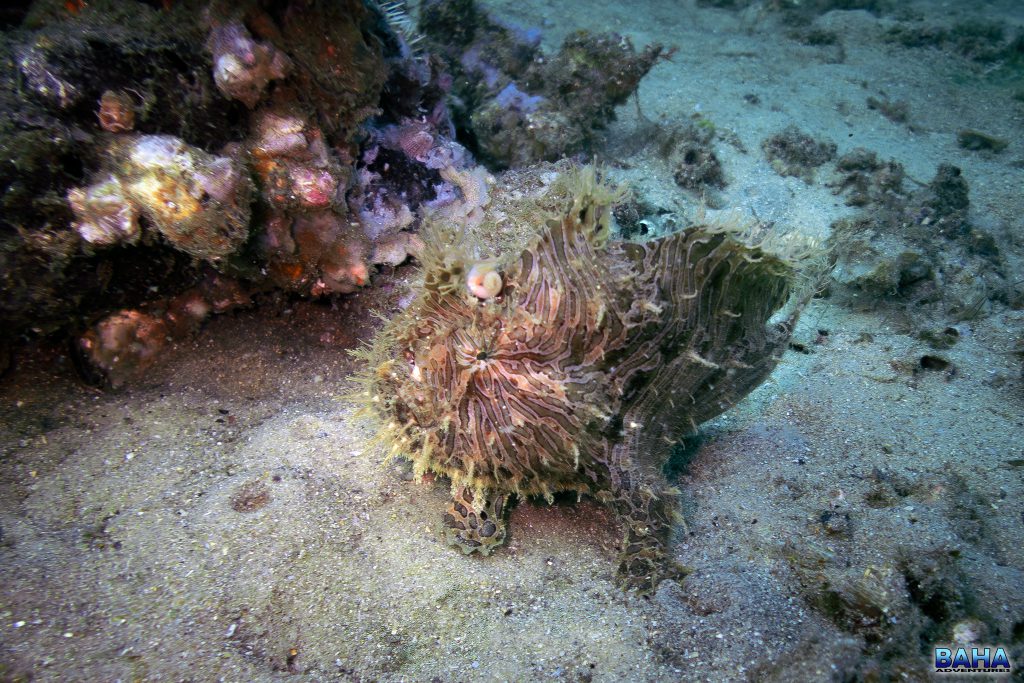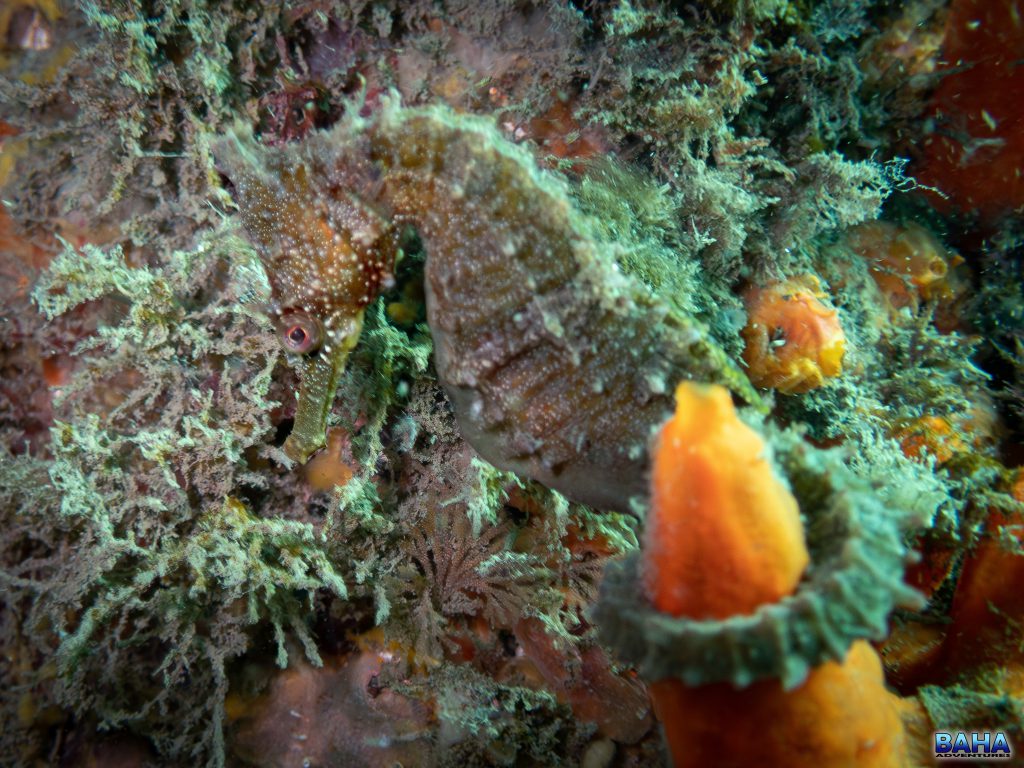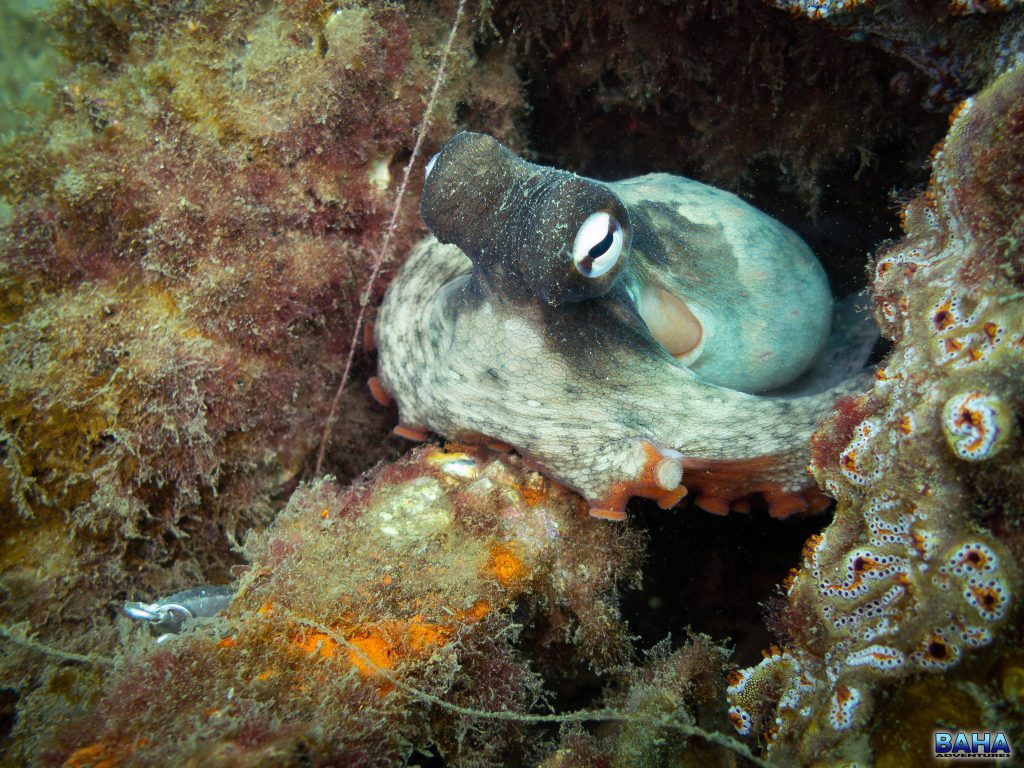Clifton Gardens (also known as Chowder Bay) is a polarising dive site located in Sydney Harbour. Talking to divers, they tend to either love it, or hate it. Regardless, all Sydney-based divers have dived it at least one (well, almost all).
So why is it so polarising? Well, for a variety of reasons. To get the negatives out of the way first: visibility is generally poor (especially if your buoyancy is poor and you kick up the bottom), there’s definite friction between the fishermen and divers, and it can be dirty due to people throwing all sorts of objects off the wharf. Another reason people may not enjoy it is that you don’t see much if you move too quickly.
On the plus side, if you have good buoyancy and are patient, it’s a macro site well worth visiting. And for the more bold of you, it’s FAR better at night. You can see everything from seahorses to kingfish, and dwarf lionfish to seals. The decorator crabs are always fun to try and find, and the octopus are generally playful (although you do need to keep an eye out for blue-ringed octopus). There are also plenty of hidden gems such as the ever present but hard to find frogfish. And recently they added some exciting new features…
My sister took up diving well before I did, learning in the glorious, clear, warm waters of Egypt. At the time, I was still living in South Africa and didn’t have the time to get into diving myself, as much as I wanted to. But times have changed, and she’s dived less and less over the years, while I’ve become the family’s dive fanatic.
So, when she arrived in Sydney for a visit, I was sure to drag her kicking and screaming to Clifton Gardens to get her boots wet once again. We entered the water via a giant stride, and may our way out in front of the wharf where we descended directly on top of the latest attraction, the artificial reef and sunken statues.
Somebody – who knows who – sunk a large number of concrete blocks just in front of the wharf. They set them up in a wall like structure, creating an artificial reef which is already full of life, including a few resident moray eels. They also sank a few statues including an elephant, a sea captain, and a large replica of the Easter Island Moai (a giant head). Next to it, there’s also a large anchor, and the seahorse hotels are not that far away. It truely was a fantastic idea, and has done a lot for local marine live, as well as attracting it’s fair share of divers with renewed interest in the site.
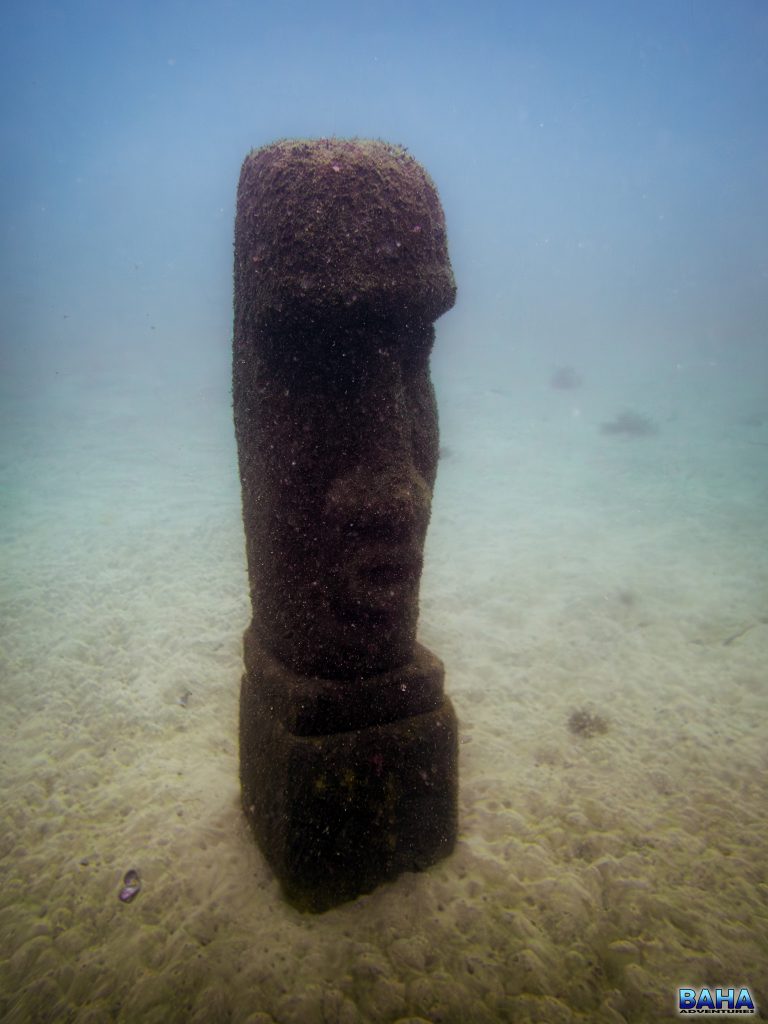
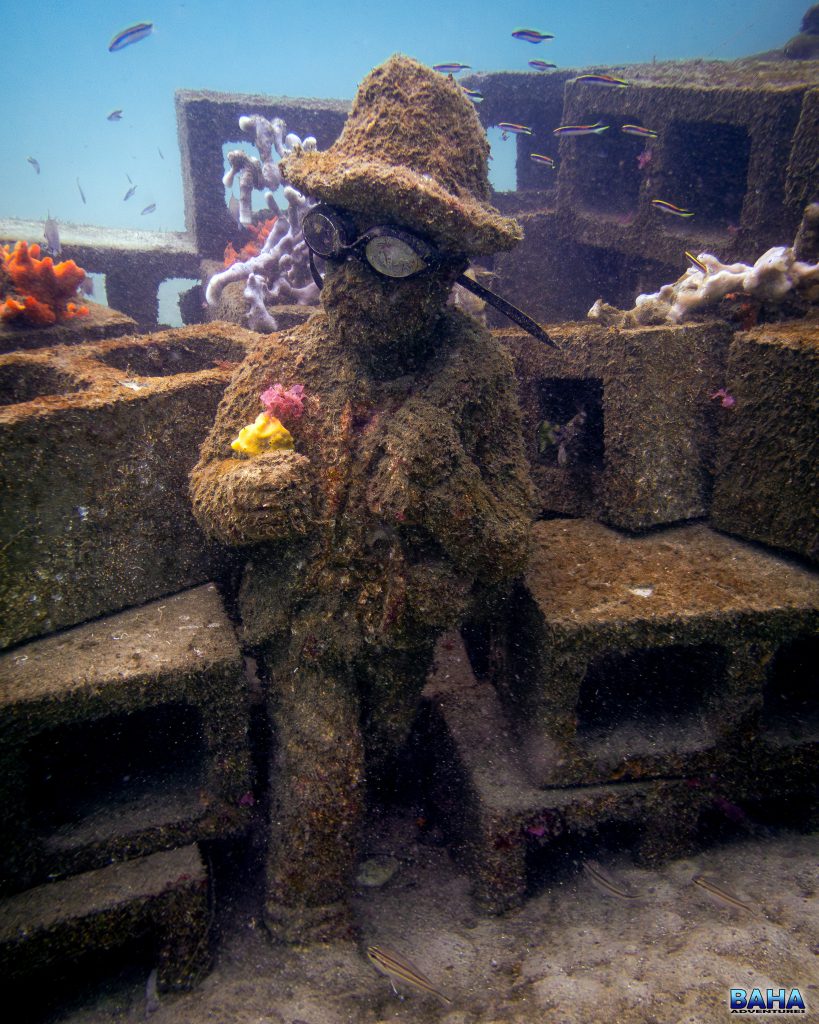
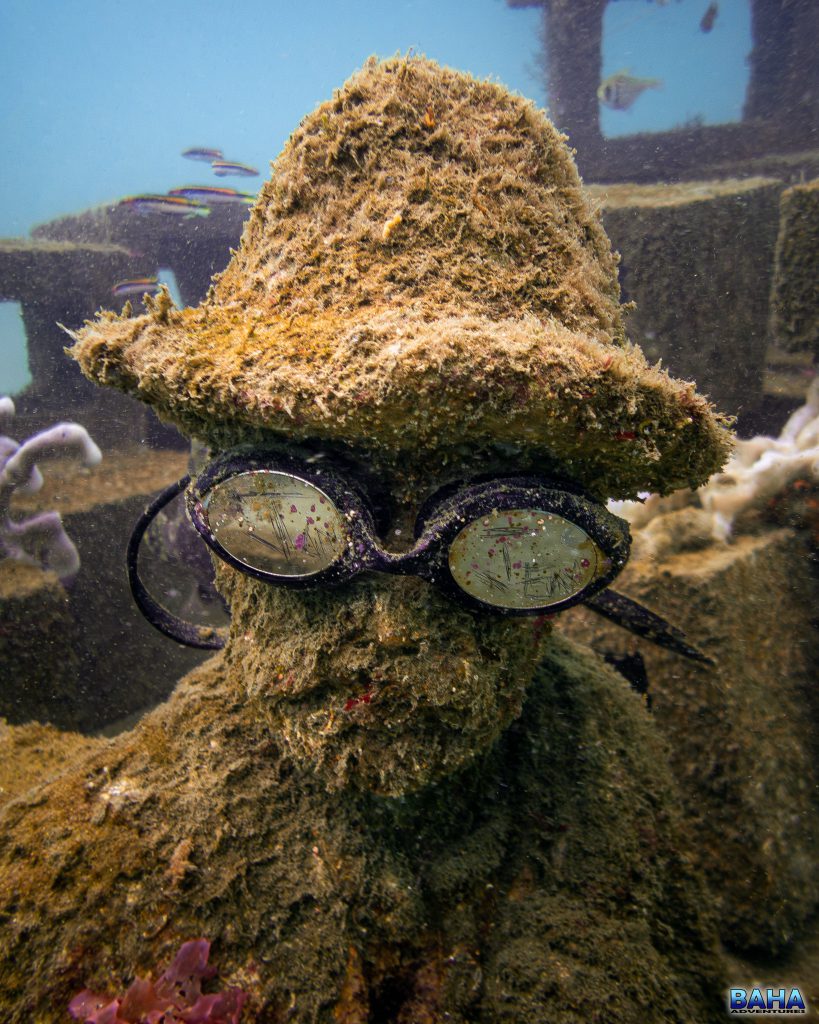
After exploring the statues for a while we made our way back to the wharf where we explored the nets and pylons. Just to keep her diving interesting, my sister managed to swim into the line of a fisherman who was jigging for bait. She was thanked by having various hooks from a Sabiki jig stick into her wetsuit, neck, and her primary reg’s hose. Thankfully, Sharon managed to free her without issues, but she was left with some annoying bubbles and a squeaking noise coming out of her hose for the rest of the dive. And I’m sure the fisherman had an interesting moment.
Despite that, the dive was well worth it, and we found some of the local favourites including White’s seahorses and a striate anglerfish. Fingers crossed this encourages her to get into the water far more frequently.
